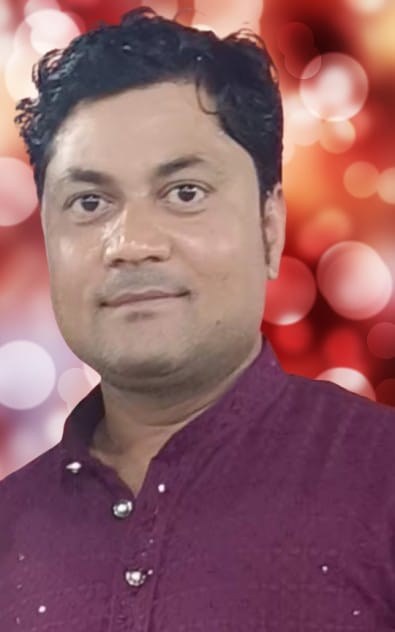The Indian Ministry of External Affairs (MEA) has strongly condemned Iran’s Supreme Leader, Ayatollah Ali Khamenei, for his recent statement. He spoke about the treatment of Muslims in India. The MEA is worried about this and says it’s not right to interfere in India’s affairs.
They also defended India’s inclusive society. This society respects the rights of all citizens, including Muslims. The MEA believes in a society where everyone is treated equally.

Key Takeaways
- The Indian Ministry of External Affairs (MEA) has strongly denounced Ayatollah Khamenei’s remarks on Indian Muslims.
- The MEA has defended India’s inclusive society that protects the rights of all citizens, including the Muslim community.
- The MEA has expressed concern over this perceived interference in India’s internal affairs by the Iranian Supreme Leader.
- The MEA’s response aims to uphold India’s commitment to secularism and its inclusive democratic values.
- The incident highlights the need for India to maintain a delicate balance in its foreign policy, especially with strategic partners like Iran.
MEA ‘Strongly’ Deplores Ayatollah Khamenei’s Remark on Indian Muslims
The Ministry of External Affairs (MEA) of India has strongly condemned Ayatollah Ali Khamenei’s recent remarks. Khamenei is the Supreme Leader of Iran. He spoke about “oppressed Muslims” in India. The MEA called his statement “factually inaccurate and misleading.”
India values the rights and freedoms of all its citizens, the MEA said. This includes people of all religions. India is a pluralistic society.
The Indian government has firmly opposed Khamenei’s remarks. They were seen as an attempt to interfere in India’s internal affairs. The MEA said such statements are unwarranted and undermine India’s sovereign rights.
India’s Strong Response to Iran’s Supreme Leader
The MEA issued a strongly worded statement. It rejected Ayatollah Khamenei’s remarks. The Indian government is committed to the well-being of all its citizens, including Muslims.
The MEA reiterated India’s secular credentials. It highlighted India’s commitment to diversity and pluralism. These are matters of pride for the nation.
Ayatollah Khamenei’s Controversial Statement
Ayatollah Ali Khamenei, the Supreme Leader of Iran, had tweeted about supporting “oppressed Muslims” in India. The Indian government saw this as an attempt to interfere in its affairs. The MEA’s stern response shows India’s unwillingness to tolerate such interference.
“The MEA described Khamenei’s statement as ‘factually inaccurate and misleading,’ emphasizing that India is a pluralistic society that values the rights and freedoms of all its citizens, regardless of their religious affiliations.”
Implications for India-Iran Relations
The recent diplomatic row between India and Iran could strain their India-Iran relations in the short term. Both countries have kept bilateral ties and diplomatic relations strong for decades. But this latest incident might test their partnership.
India stood firm, with the Ministry of External Affairs (MEA) strongly condemning Khamenei’s statement. This shows New Delhi’s commitment to its sovereignty and democratic values. This stance will likely shape future India-Iran interactions as they face regional geopolitics challenges.
The long-standing diplomatic relations between India and Iran have faced many challenges before. But this controversy could cause temporary friction. India’s quick response to Khamenei’s remarks might change the way they interact in the future.
Despite the current tension, both India and Iran want to keep their bilateral ties strong. They aim to address this issue through dialogue and diplomacy. Their goal is to minimize the impact on their India-Iran relations.

“The recent controversy has the potential to create temporary friction in the India-Iran relationship, but both countries have a vested interest in maintaining their diplomatic ties and preserving regional stability.”
Reactions from the Indian Muslim Community
The Indian Muslim community is worried about divisive words and outside interference. They say foreign leaders can talk about global issues, but should respect India’s democracy. India has always protected the rights of religious minorities, including Muslims.
Concerns over Divisive Rhetoric
After Ayatollah Khamenei’s comments, Indian Muslims are worried. They fear such words could create trouble in the country. They want to keep India united and peaceful, as it has always been.
Calls for Unity and Harmony
Indian Muslim leaders are urging everyone to avoid divisive talk. They want to strengthen unity and harmony in the nation. They stand by India’s democratic values and ask everyone to do the same.
FAQ
What is the Indian Ministry of External Affairs’ (MEA) response to Ayatollah Ali Khamenei’s remarks on the treatment of Muslims in India?
The MEA has strongly condemned Ayatollah Khamenei’s comments. They say these remarks are “factually inaccurate and misleading.” India values the rights and freedoms of all citizens, no matter their religion.
Such comments from foreign leaders are seen as unwarranted. They undermine India’s sovereignty.
What were Ayatollah Khamenei’s controversial statements regarding Indian Muslims?
Ayatollah Ali Khamenei, Iran’s Supreme Leader, tweeted about supporting “oppressed Muslims” in India. The Indian government saw this as an attempt to interfere in its affairs.
How might Ayatollah Khamenei’s remarks impact India-Iran relations?
Ayatollah Khamenei’s comments could strain India-Iran relations. Both countries have good diplomatic ties. But this controversy might make things tense.
The Indian government’s defense of its sovereignty and democracy will shape future interactions.
How has the Indian Muslim community responded to Ayatollah Khamenei’s remarks?
The Indian Muslim community is worried about divisive rhetoric. They value India’s inclusive and democratic society. This society protects the rights of religious minorities, including Muslims.
In response, the community calls for unity and harmony. They reaffirm their commitment to India’s democratic principles.

Saurabh Kumar is the founder of SaurabhOrbit.com, a hub for tech news, digital marketing insights, and expert blogging advice. With a deep passion for technology and digital strategies, Saurabh simplifies complex trends into actionable insights for readers looking to stay ahead in the digital world. My mission is to empower entrepreneurs, tech enthusiasts, and marketers with the latest tools and knowledge to thrive in the online space.
